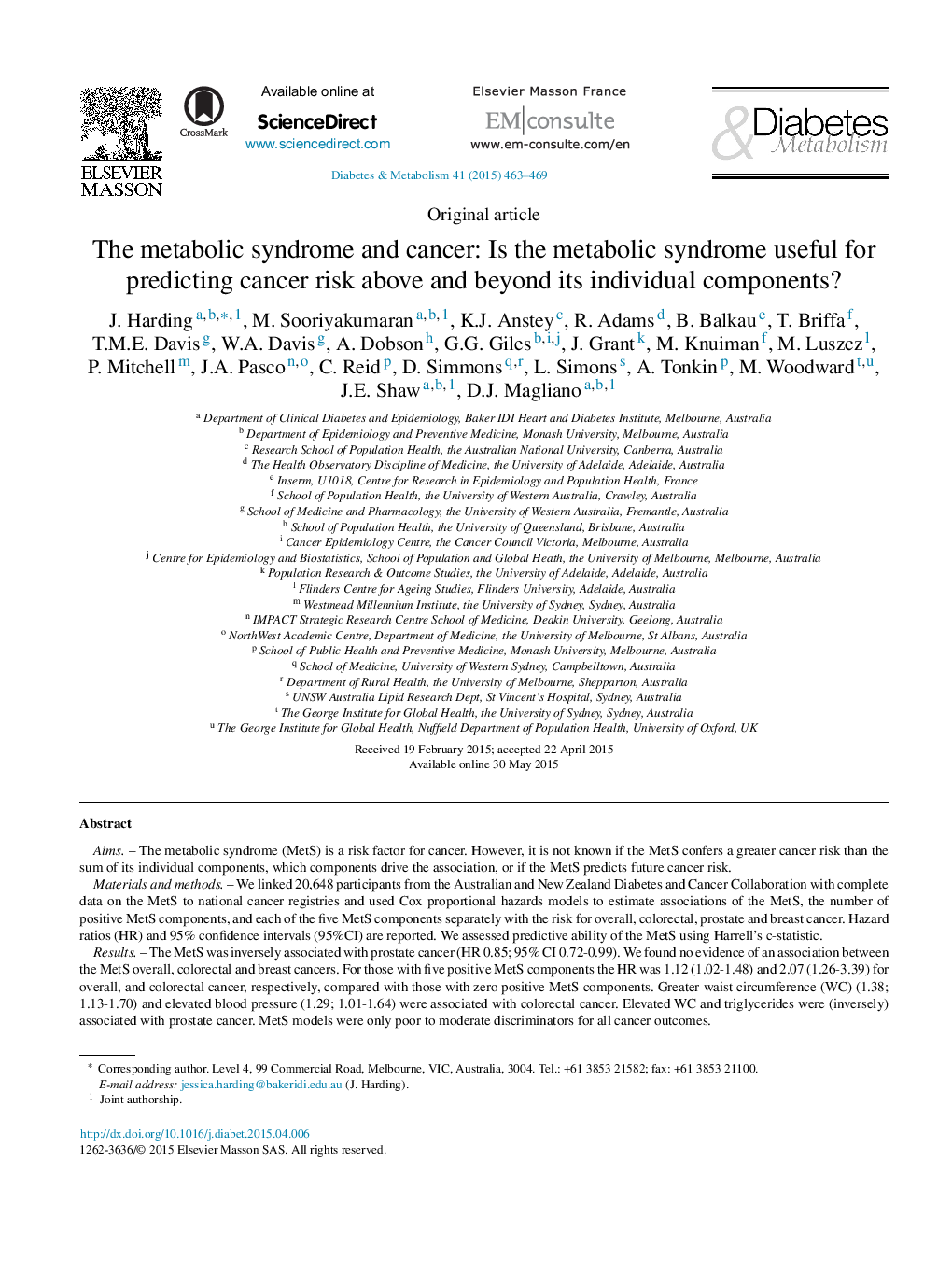| کد مقاله | کد نشریه | سال انتشار | مقاله انگلیسی | نسخه تمام متن |
|---|---|---|---|---|
| 3258996 | 1207561 | 2015 | 7 صفحه PDF | دانلود رایگان |
AimsThe metabolic syndrome (MetS) is a risk factor for cancer. However, it is not known if the MetS confers a greater cancer risk than the sum of its individual components, which components drive the association, or if the MetS predicts future cancer risk.Materials and methodsWe linked 20,648 participants from the Australian and New Zealand Diabetes and Cancer Collaboration with complete data on the MetS to national cancer registries and used Cox proportional hazards models to estimate associations of the MetS, the number of positive MetS components, and each of the five MetS components separately with the risk for overall, colorectal, prostate and breast cancer. Hazard ratios (HR) and 95% confidence intervals (95%CI) are reported. We assessed predictive ability of the MetS using Harrell's c-statistic.ResultsThe MetS was inversely associated with prostate cancer (HR 0.85; 95% CI 0.72-0.99). We found no evidence of an association between the MetS overall, colorectal and breast cancers. For those with five positive MetS components the HR was 1.12 (1.02-1.48) and 2.07 (1.26-3.39) for overall, and colorectal cancer, respectively, compared with those with zero positive MetS components. Greater waist circumference (WC) (1.38; 1.13-1.70) and elevated blood pressure (1.29; 1.01-1.64) were associated with colorectal cancer. Elevated WC and triglycerides were (inversely) associated with prostate cancer. MetS models were only poor to moderate discriminators for all cancer outcomes.ConclusionsWe show that the MetS is (inversely) associated with prostate cancer, but is not associated with overall, colorectal or breast cancer. Although, persons with five positive components of the MetS are at a 1.2 and 2.1 increased risk for overall and colorectal cancer, respectively, and these associations appear to be driven, largely, by elevated WC and BP. We also demonstrate that the MetS is only a moderate discriminator of cancer risk.
Journal: Diabetes & Metabolism - Volume 41, Issue 6, December 2015, Pages 463–469
